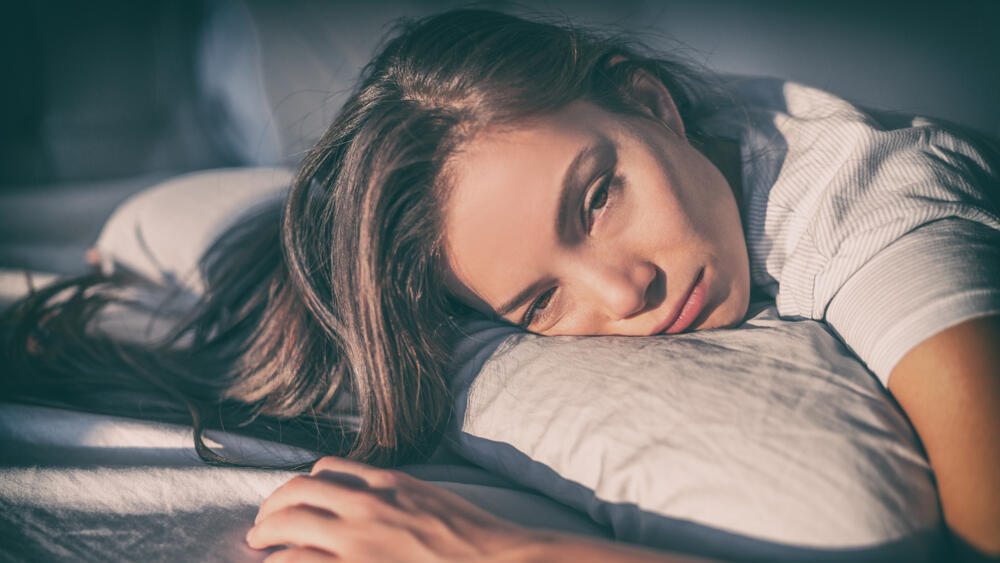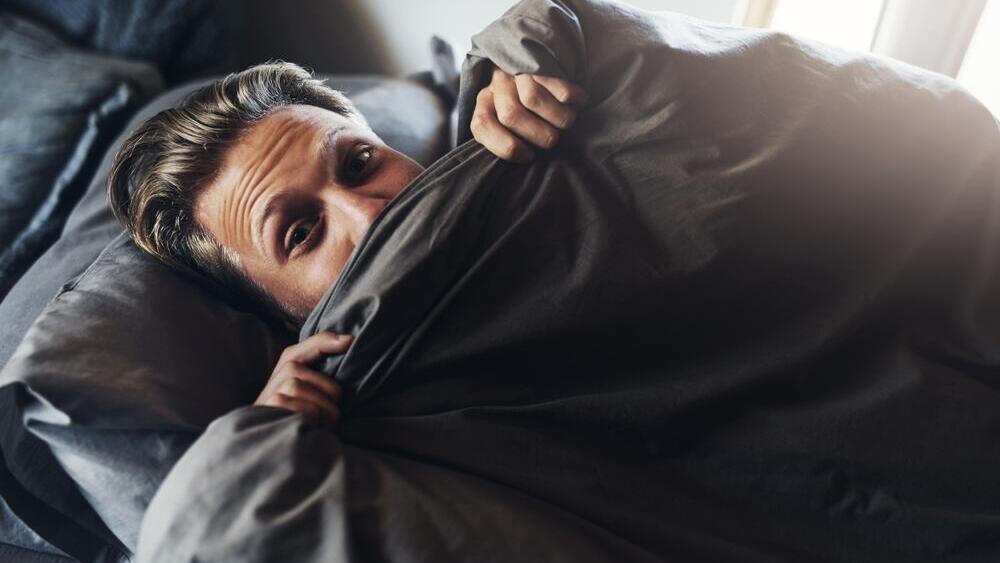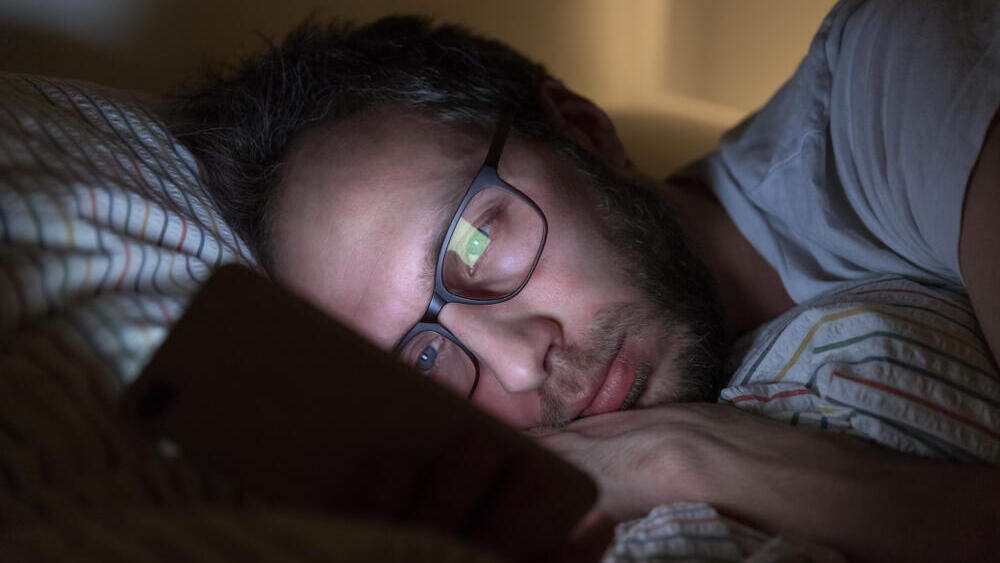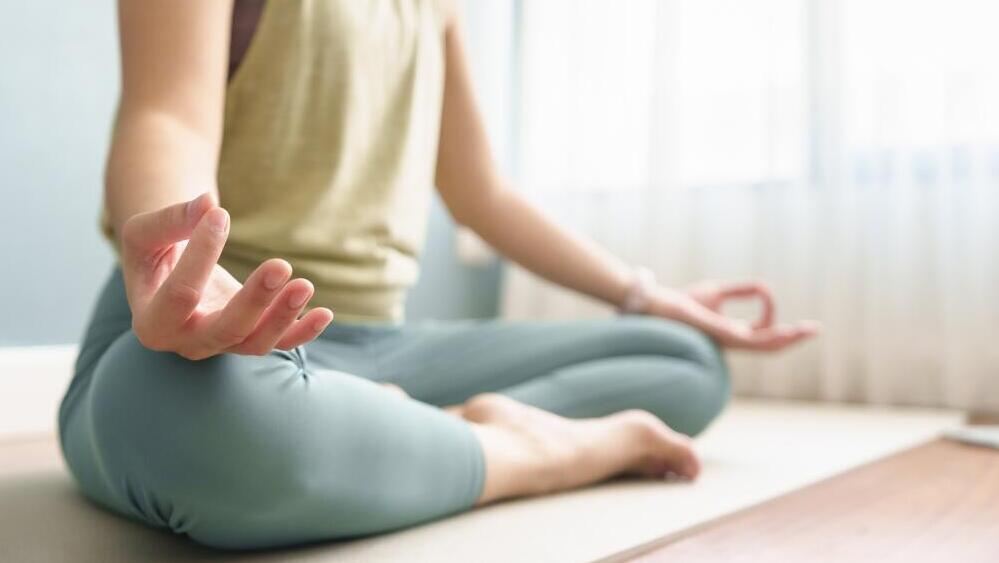Nightly sirens, rocket fire and persistent anxiety – the severe decline in sleep quality plaguing Israelis since October 7 has intensified during the conflict with Iran, according to a new study by the Hebrew University and Hadassah Medical Center published in the International Journal of Clinical and Health Psychology.
It is the first systematic documentation of how warfare impacts civilian sleep patterns. Experts warn of serious consequences but also outline practical coping strategies.
"Worldwide, much research focuses on war's impact on soldiers," said lead researcher Prof. Shoham Choshen-Hillel of Hebrew University's Business School. "But until now, no systematic study examined sleep quality for civilians on the home front under daily threat. Israel's situation is unique, demanding a different perspective."
The study, launched in December 2023, analyzed data from approximately 9,000 participants. It combined three researcher-conducted surveys with Israel’s Central Bureau of Statistics (CBS) data collected between January 2023 and January 2024, enabling pre-war and wartime comparisons.
The findings reveal a sharp, significant deterioration across all sleep metrics:
- Israelis sleeping less than 6 hours nightly surged from 13% pre-war to 31% in December 2023-January 2024.
- Poor sleep health reports jumped from 15% to 38%.
- Clinical insomnia (exceeding diagnostic thresholds) rose from 4% to 20%.
Overall, nearly half the Israeli population (48%) reported sleep problems post-war, compared to 18% before. Sleeping pill use also increased from 8% to 13%. Researchers warn this signifies chronic sleep impairment with potentially profound long-term public health consequences. "
A 20% increase in the prevalence of less than 6 hours sleep – which is unhealthy – is substantial," said Choshen-Hillel.
 Prof. Shoham Choshen-HillelPhoto: Idit Wagner
Prof. Shoham Choshen-HillelPhoto: Idit WagnerShe emphasized that the duration is alarming: "The shocking picture for us is that sleep hasn't improved for a year and a half. Symptoms lasting over six months are significant – this isn't temporary; it's a long period health-wise with major implications. That's our central concern."
The study found sleep impairment was especially severe among women. "We saw a similar pattern during COVID – women experience more stress, and their sleep is more affected by stressful situations. It's saddening to see this pattern repeat in war.
“It's a strong, consistent effect – women suffer more and sleep less," Choshen-Hillel noted. Another high-risk group identified: citizens with abducted, killed or injured relatives or friends.
Choshen-Hillel said the current threat of escalation with Iran exacerbates the problem: "Simply looking around, it's clear the situation regarding sleep and other aspects, is the worst since the war began.
“People now wake for shelters multiple times a night and anxiety has understandably intensified. I have no doubt the situation is worse than we previously documented. We find even those not in direct danger experience deep, lasting psychological impacts from the war, manifesting in sleepless nights."
Co-researcher Dr. Uri Zak stressed the need for policy action: "Understanding how war affects sleep quality can help policymakers and the health system support civilians during and after conflicts. Sleep is not a luxury – it's essential for coping, healing and resilience." Other researchers included Professors Hagit Hochner and Alex Gileles-Hillel.
No refuge from anxiety
The severe sleep disruption is intensifying. Nighttime rocket barrages, sirens and collective anxiety activate survival mechanisms, leaving the body on high alert and turning sleep into a daily struggle.
Get the Ynetnews app on your smartphone: Google Play: https://bit.ly/4eJ37pE | Apple App Store: https://bit.ly/3ZL7iNv
"There's a lot of vigilance and hyperarousal – that's our survival mechanism in action," explained Dr. Liron Saporta, clinical psychologist and head of Clalit Health Services' trauma-focused unit.
 Dr. Liron SaportaPhoto: Efrat Cooper
Dr. Liron SaportaPhoto: Efrat Cooper"In some ways, it's even good we are vigilant and anxious during a real event requiring focus. But regarding sleep – that's precisely where the problem starts. The body can't 'fade out' when highly aroused. Falling asleep becomes very difficult."
Dr. Uri Alkan, head and neck surgeon and sleep specialist at Rabin Medical Center, concurred: "We have a survival mechanism responding to threat by releasing hormones like adrenaline and cortisol. As the body prepares for danger, heart rate and blood pressure rise, pupils dilate – we enter high arousal, like an animal reacting to a lion's roar, ready to flee or fight."
The problem, Alkan said, is that sleep requires the exact opposite state: "During sleep, the body downshifts – heart rate and blood pressure drop, muscles relax. When under attack – even briefly – the body remains alert long after. This profoundly disrupts sleep."
Sirens aren't the only disruption. Both body and mind remain in sustained vigilance, hindering relaxation even in quiet. "There's a bidirectional link between sleep and anxiety," Alkan added. "Poor sleep increases anxiety risk because emotional balance largely occurs during sleep. Conversely, anxiety causes hyperarousal damaging sleep quality, making it less deep and increasing wakefulness from minor noises. An anxious person wakes easily."
 Dr. Uri AlkanPhoto: Shir Chasin
Dr. Uri AlkanPhoto: Shir ChasinAnxiety also affects internal sleep structure ("sleep architecture"): less deep sleep and less REM sleep. During prolonged stress, people wake easily and struggle to fall back asleep. "If someone wakes briefly for the bathroom and returns to sleep, the body remains parasympathetic (calm).
“But if they turn on the TV, read news, hear explosions or go to a shelter during wakefulness, their entire sympathetic system activates. Once aroused, returning to sleep is much harder," Alkan explained.
Saporta noted daytime distractions contribute to the sleep problems. "Often, we avoid difficult thoughts during the day: busy with kids, work, social media. But at night, when quiet and the body should relax, everything we suppressed surfaces. We're flooded with worries and fears about the situation. When exhausted with no resources left to suppress, falling asleep becomes incredibly hard," she said.
Health risks and coping strategies
Chronic sleep deprivation poses serious health risks. "Sleep is an existential need, not a luxury," emphasized Alkan. "Like breathing, drinking or eating – you cannot live without sleep. If this basic need is impaired, quality of life suffers, followed by health and longevity."
Immediate effects include fatigue, irritability, depression, anxiety, impaired memory and slowed reaction times. Long-term risks rise for hypertension, high blood lipids/sugar, heart attack, stroke and traffic accidents. "This isn't just discomfort – it's a real health problem requiring attention," Alkan said.
Despite feeling impossible, steps can improve sleep:
1. Optimize environment: Make the sleep space (even a shelter) pleasant, quiet and comfortable. Use mattresses, pillows, ensure comfortable temperature, avoid bright lights suppressing melatonin. Warm, dim yellow light signals sleep time.
2. Reduce screen time: Significantly cut screen exposure, especially pre-sleep. Avoid TV or phone scrolling at night. If waking, avoid screen light; stay in relative darkness to allow the body to relax back to sleep.
3. Maintain routine: Keep consistent sleep times even during upheaval. Limit daytime naps if struggling at night. "Our bodies love routine," Alkan noted.
4. If awake: Don't stay frustrated in bed. Get up, read calmly, listen to a podcast or practice guided imagery (e.g., visualizing a favorite nature path). Return to bed when sleepy.
5. Practice breathing: "Correct breathing – longer exhalation than inhalation, calm and deep – signals the body no immediate danger exists, activating the calming system. Breathing shifts focus from worries to the present body," advised Saporta. Techniques include "smelling a flower" (inhale), "blowing out a candle" (exhale), ensuring exhalation is longer.
6. Use guided imagery and calming techniques: Visualize a safe place or use the "Butterfly Hug" technique (cross hands on opposite shoulders, tap rhythmically while deep breathing). "These have immense power, helping the body shift from arousal to calm – essential for sleep," Saporta said.
7. Help children: Explain the situation simply, without denial or excessive fright. Teach child-friendly breathing techniques ("Mountain to Valley": finger rises up mountain/inhale, descends valley/exhale). "Children need adults to be a regulating voice, providing calm and security – critical for their sleep and overall safety," Saporta emphasized.
When insomnia becomes chronic, seek help. "Start with your family physician," Alkan recommended. "If that's insufficient or the situation is complex, consult a sleep specialist. If the main cause is psychological (anxiety or trauma), consult mental health professionals. There are solutions and people to turn to. This is part of coping and recovery.”







